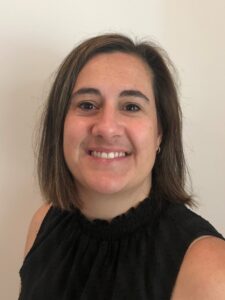SUCS ECR Seminar – Dr Indrek Pernik and Dr Jody Moller
SUCS ECR Seminar June
This seminar will be delivered in Chemistry Lecture Theatre 3 and Online Zoom.
Zoom Link: https://uni-sydney.zoom.us/j/88229903737?pwd=Mkh1R09TTVIySDZhNGJkTHN3clJyUT09
Speakers:
Dr Indrek Pernik

Improving Catalytic Reactions, One Catalyst at a Time
Abstract: To be able to synthesize specific molecules more quickly, in fewer chemical steps and with the production of less waste materials, is more important than ever before. A key strategy for achieving these goals is the use of clever catalysts to mediate the reactions. However, the challenge when using catalysts, is to understand how they work, and how they can be tuned to make them useful in industrial scale. This presentation will concentrate on an organic transformation called hydroacylation, which is theoretically a simple conversion of aldehydes to ketones (in the presence of alkenes/alkynes and a transition metal catalyst). While potentially a very powerful reaction, and widely studied, the hydroacylation strategy is not commercially used. Here, I will demonstrate the challenges involved in hydroacylation (and in transition metal catalysis in general), and some of the ways to deal with these challenges.
Biography: Indrek Pernik is a research fellow focused on organometallic chemistry and in particular the use of organometallic complexes as catalysts. Indrek received his MSci from The University of Bristol (UK) and The University of North Carolina at Chapel Hill (USA). He followed his studies with a year in industry working as an organic chemist, before undertaking his doctoral studies (inorganic chemistry) at The University of Oxford. His DPhil project was focused on the development of rhodium catalysts. In 2014, he moved to Australia, and worked as a post-doctoral researcher at Monash University (main group chemistry) and at Macquarie University (recyclable catalysts). He is currently a research fellow at the School of Chemistry, University of Sydney and his work is mainly concentrated on bimetallic transition metal catalysts, and their use for challenging catalytic transformations.
Dr Jody Moller (Morgan)

What’s in a vape cloud?
Abstract: Electronic cigarette use in Australia has increased significantly over the past few years, particularly since the introduction of disposable devices. In line with this increase, Australian regulation of electronic cigarettes and the scheduling of nicotine for use in these devices has recently changed (October 2021). Jody’s research involves the examination of content and toxicity of electronic cigarette liquids and aerosols. This talk will examine the pathway Jody and colleagues have taken in their electronic cigarette research program, from 2018 to 2022, with a focus on how simple, well-timed research questions have driven the direction of their research. This talk will also highlight the public health impact of this work.
Biography: Jody Moller (Morgan) is a lab-based toxicology researcher whose research interests sit at the intersection of analytical chemistry and public health with a focus on harm reduction methods. Her current research is focused on electronic cigarettes, cannabis and pill-testing, with particular emphasis on identification and quantification of chemical constituents in samples available to Australian consumers.

